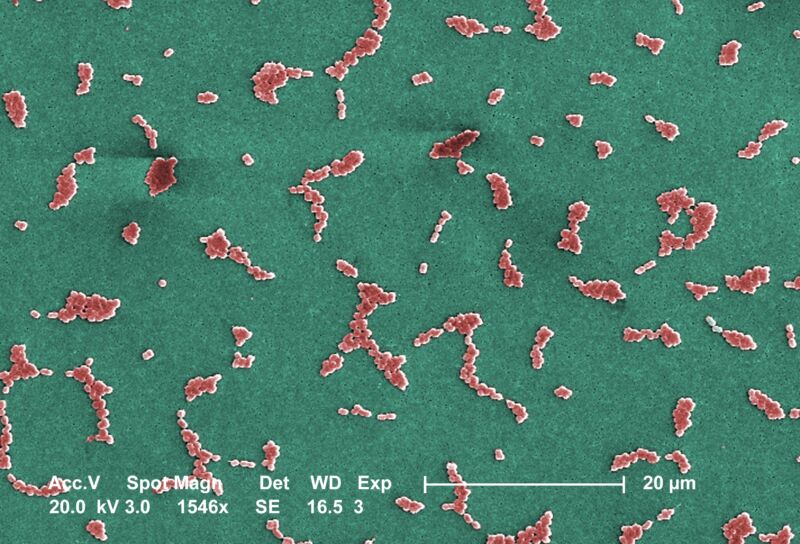- Регистрация
- 17 Февраль 2018
- Сообщения
- 25 396
- Лучшие ответы
- 0
- Баллы
- 2 093
Offline

Enlarge / This Scanning Electron Microscope image depicts several clusters of aerobic Gram-negative, non-motile Acinetobacter baumannii bacteria under a magnification of 24,730x. Members of the genus Acinetobacter are nonmotile rods, 1-1.5µm in diameter, and 1.5-2.5µm in length, becoming spherical in shape while in their stationary phase of growth. This bacteria is oxidase-negative and therefore does not utilize oxygen for energy production. They also occur in pairs under magnification. Acinetobacter spp. are widely distributed in nature, and are normal flora on the skin. Some members of the genus are important because they are an emerging cause of hospital acquired pulmonary, i.e., pneumoniae, hemopathic, and wound infections. Because the organism has developed substantial antimicrobial resistance, treatment of infections attributed to A. baumannii has become increasingly difficult. The only drug that works on multi-resistant strains of A.baumannii is colistin which is a very toxic drug.
A new experimental antibiotic can handily knock off one of the world's most notoriously drug-resistant and deadly bacteria —in lab dishes and mice, at least. It does so with a never-before-seen method, cracking open an entirely new class of drugs that could yield more desperately needed new therapies for fighting drug-resistant infections.
The findings appeared this week in a pair of papers published in Nature, which lay out the extensive drug development work conducted by researchers at Harvard University and the Swiss-based pharmaceutical company Roche.
In an accompanying commentary, chemists Morgan Gugger and Paul Hergenrother of the University of Illinois at Urbana-Champaign discussed the findings with optimism, noting that it has been more than 50 years since the Food and Drug Administration has approved a new class of antibiotics against the category of bacteria the drug targets: Gram-negative bacteria. This category—which includes gut pathogens such as E. coli, Salmonella, Shigella, and the bacteria that cause chlamydia, the bubonic plague, gonorrhea, whooping cough, cholera, and typhoid, to name a few—is extraordinarily challenging to kill because it's defined by having a complex membrane structure that blocks most drugs, and it's good at accumulating other drug-resistance strategies
Read 13 remaining paragraphs | Comments
